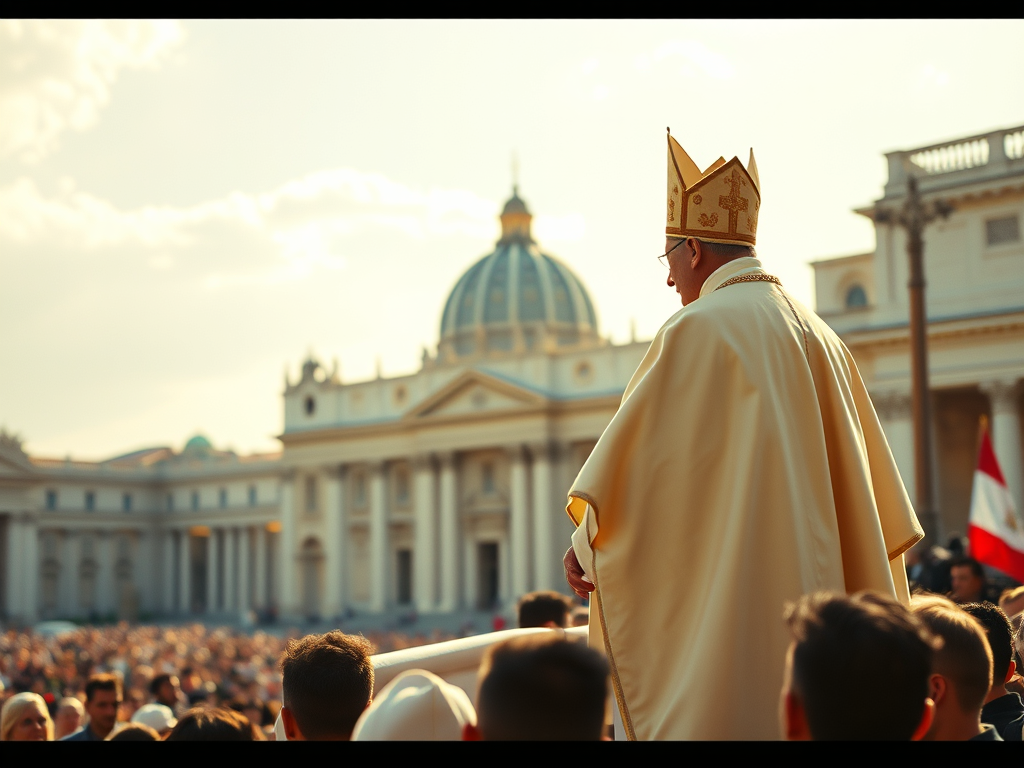Never before has a new Pope captured as much interest as Pope Leo XIV in people of all ways of life and creeds. This widespread fascination stems from his missionary work spanning decades amid humble communities in Northern Peru. How he decided to become a Peruvian citizen, and how much good he has done for the Catholic Christianity among people from those communities.
Pope Leo XIV, formerly Cardinal Robert Prevost, began missionary work in Chulucanas, Peru, in the 1980s. His interest in Peruvian culture and people was sparked by a childhood curiosity when he received a chullo. It was a gift from his aunt after she visited the Andean country.
He was only five years old when he realized that the world was filled with diverse cultures; people far beyond his hometown of Chicago. His aunt’s stories about her time in Peru left a lasting impression on him.
Many are now familiar with the new Pope’s childhood story and how he grew up in a devout Catholic home. His parents were active practitioners of the Catholic faith and not only regular churchgoers. His family was committed and involved with the work of the Church.
It was in this environment that he learned about Christ’s love for the meek, humble, and needy. He also understood the foundation of the Catholic Church’s faith, which is rooted in God’s love for all humankind made flesh in Jesus Christ and the importance of missionary work and religious tradition.
The “Habemus Papam” announcement on May 8, 2025, declaring Cardinal Robert Francis Prevost as the new Pope Leo XIV, went beyond all predictions. It was a delightful surprise for most Catholics worldwide, especially in the Americas. They celebrated this momentous occasion with immense joy; people in both Chiclayo, Peru, and Chicago, United States.
Watching the news that morning, I thought of Pope Francis in Saint Peter’s Basilica on Easter Sunday. I had not watched a Pope lead the Easter Sunday Mass in the Vatican since John Paul II. Pope Francis had been ill and miraculously recovered to give the blessing at the end of Mass. The next day, his death drew significant attention to the Vatican and the process of electing a new Pope. The world saw the Catholic Church’s remarkable organization and adherence to tradition. It highlights its profound influence on millions of Catholics worldwide.
Seventeen days later, the new Pope Leo XIV stood on the St. Peter’s Basilica Balcony, greeting the people of Rome and the world. The Augustinian priest who began his inspiring missionary journey in Peru during the 1980th was now the new Pope!
Through the centuries, God has called missionaries to serve far from their homeland. An example of it is the missionary work of Catholic friars and priests in Hispanic America that started five hundred years ago.
It happened when Catholic Queen Isabella of Castile (Spain) sent Catholic priests to evangelize the inhabitants of the Americas.
Native people from the Americas were idol worshipers and unfamiliar with the concept of a merciful God. The evangelistic work missionaries did let natives learn about the sacrifice of the Lord Jesus, for the sins of humanity. This teaching helped them understand that human sacrifices were not necessary to worship a God of love.
During this time, missionary work began using baroque violins to play sacred music to form first contact with native people. Friars and priests learned the native languages to teach the Word of God understandably to native people. They also created the first written grammar for Quechua (Santo Tomas, D. de., 1560) and Aymara (Bertonio, L.,1603) languages.
Missionaries became spiritual leaders and protectors of the natives in the ‘missions’ they built together throughout Hispanic America. They lived in these communities, and most never returned to Europe. At their death, the community buried their priests in the churches they served. The people loved and respected them.
In 2025, Pope Leo XIV’s missionary work in Peru reminded the world that God’s love for humanity remains unchanged and impartial.
The love, compassion, and willingness to serve that drive missionary work stem from a heart devoted to God’s love for humankind.
Yet, the world yearns for peace and, in its lack of love for neighbors, seeks unsuccessful ways to find it, often living far from God’s love.
